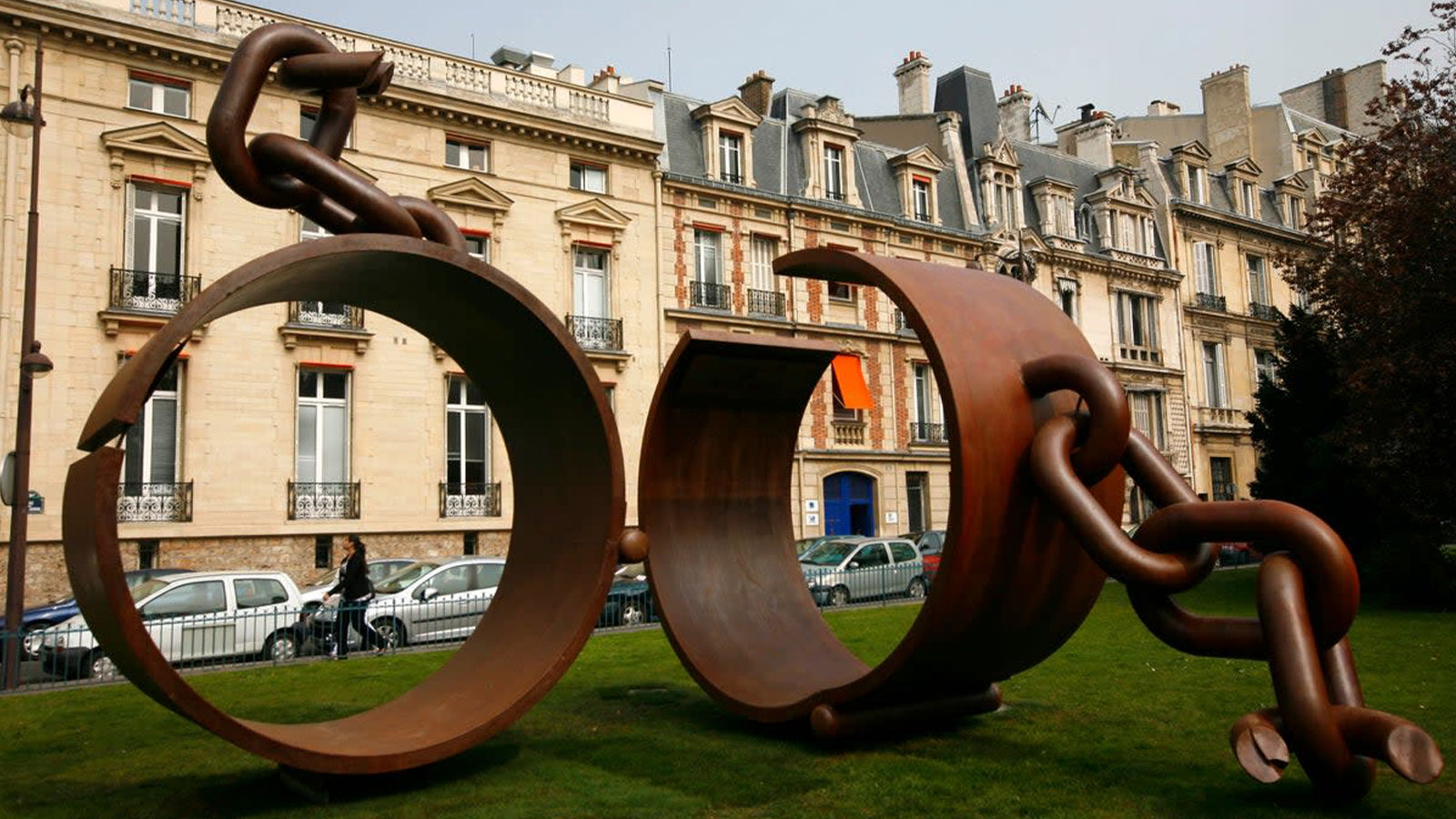Bell Ribeiro-Addy, chair of the cross-party group on reparations, said UK had a ‘moral duty’ to face up to the past as campaigners gather in London this weekend.
By Nadine White, The Independent —
Britain risks being “left in the cold” if it continues to ignore the growing calls for slavery reparations, an MP has warned, ahead of a conference to demand action.
Campaigners from around the world are gathering in London this weekend for a two-day meeting to discuss the government’s responsibility to consider compensation.
Momentum has gathered in the past year with calls for action coming from the Caribbean, Africa, the EU and the UN, building upon years of lobbying around the cause from campaigners.
Labour MP Bell Ribeiro-Addy, chair of the all-party parliamentary group (APPG) on Afrikan reparations, said the UK had a “moral duty” to face up to the past.
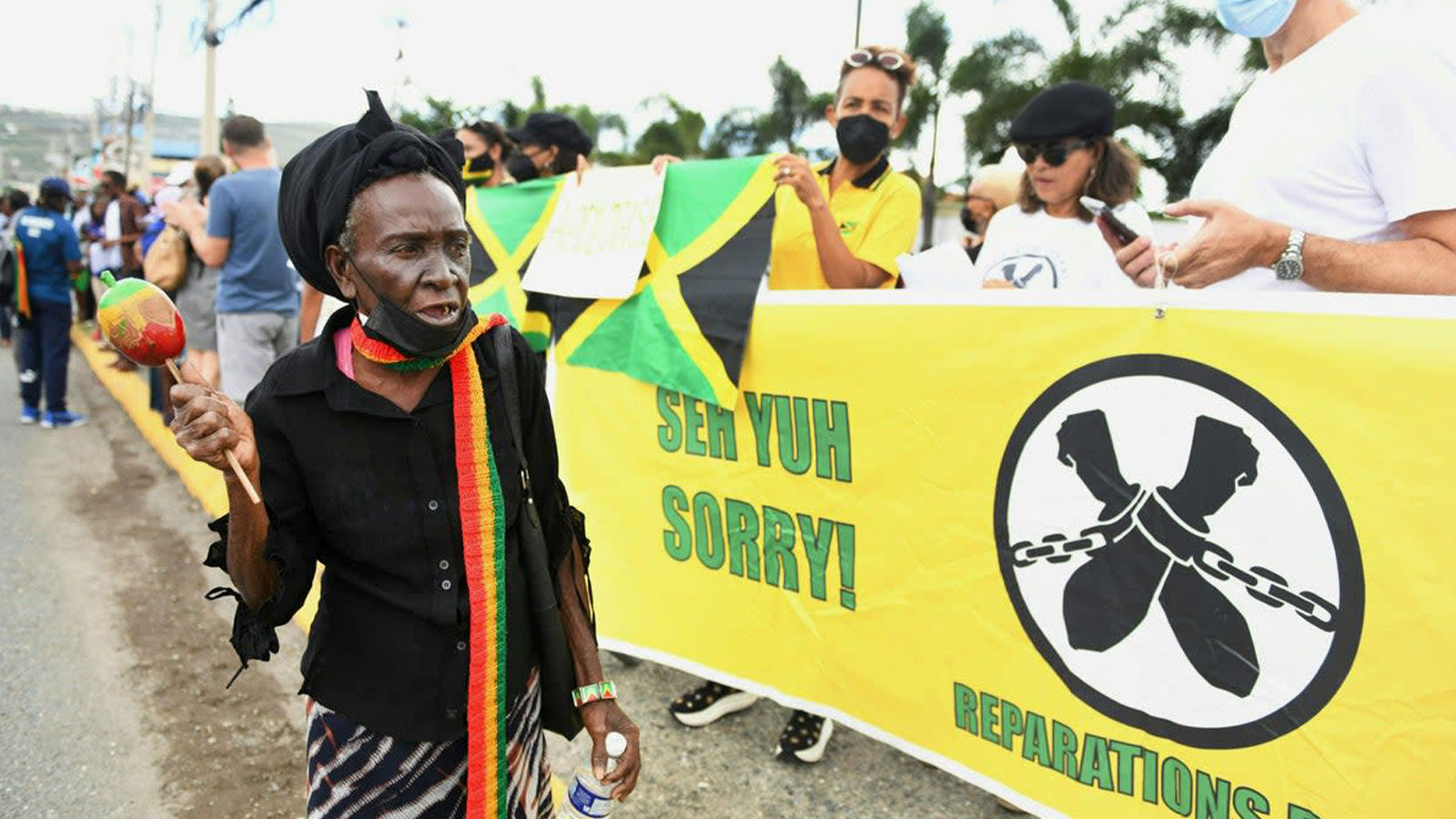
A reparations protest in Jamaica during last year’s royal tour of the nation (AFP via Getty Images)
“The UN, other governments, religious institutions and NGOs have all accepted they need to address their role in the enslavement of African people and the legacy of racism and impoverishment it left behind,” she told The Independent.
“The UK has a moral duty to address reparative justice.
“For decades grassroots organisations have fought for the level of recognition that the global reparations movement has today.
“If our government doesn’t value the moral arguments they should take heed of the changing global power structures, and understand that we may be left in the cold if we do not address these historical injustices now.”
Leading figures in the reparations movement, including Dr Julius Garvey, son of renowned activist Marcus Garvey, and Diane Abbott, Britain’s first Black woman MP, are involved in the Westminster conference.
Campaigners are looking to lobby the royal family, Lloyd’s of London and the Church of England as well as the government for financial recompense for their role in the slave trade.
In September, 15 Caribbean nations joined forces to draft a letter demanding that European countries pay slavery reparations to the tune of £33 trillion, with Britain singled out for £19.6 trillion in compensation.
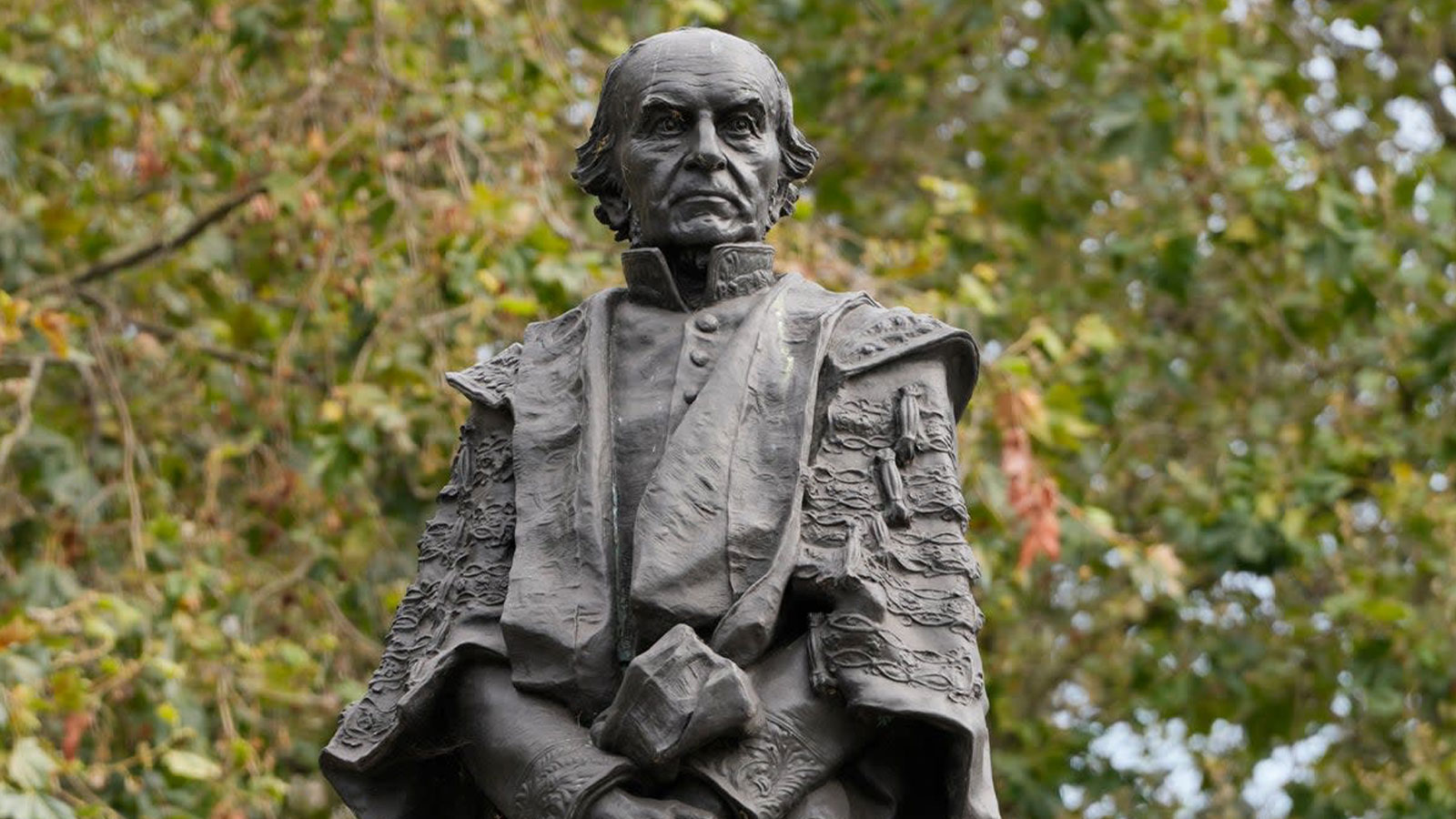
White, aristocratic families such as Sir William Gladstone’s have recently opted to make financial donations towards the countries they owned slaves in (Copyright 2023 The Associated Press. All rights reserved)
Earlier this year, the UN called on Britain to take action over reparations, as part of a damning report into racism in the UK. The EU also hinted at the need for reparations, describing slavery as a “crime against humanity”.
And in the summer, the Dutch king, Willem-Alexander, apologised for the Netherlands‘ historical involvement in slavery and its ongoing effects, though the country’s prime minister, Mark Rutte, said the government would not pay reparations, going against recommendations made by an advisory panel in 2021.
Though not quite the same as financial reparations and more donations than anything else, white, aristocratic families who benefited from slavery decided to make small monetary payments to the countries they owned slaves in, from former British prime minister Sir William Gladstone’s descendants in Guyana, to the Trevelyan family with Grenada.
Last month, an arm of the National Health Service in Scotland announced it would make non-financial reparations for its historical links to slavery following new research highlighting its connections with the slave trade.
At the beginning of this year, the Church of England committed £100m to a fund it is setting up to compensate for its historical benefit from the international slave trade.
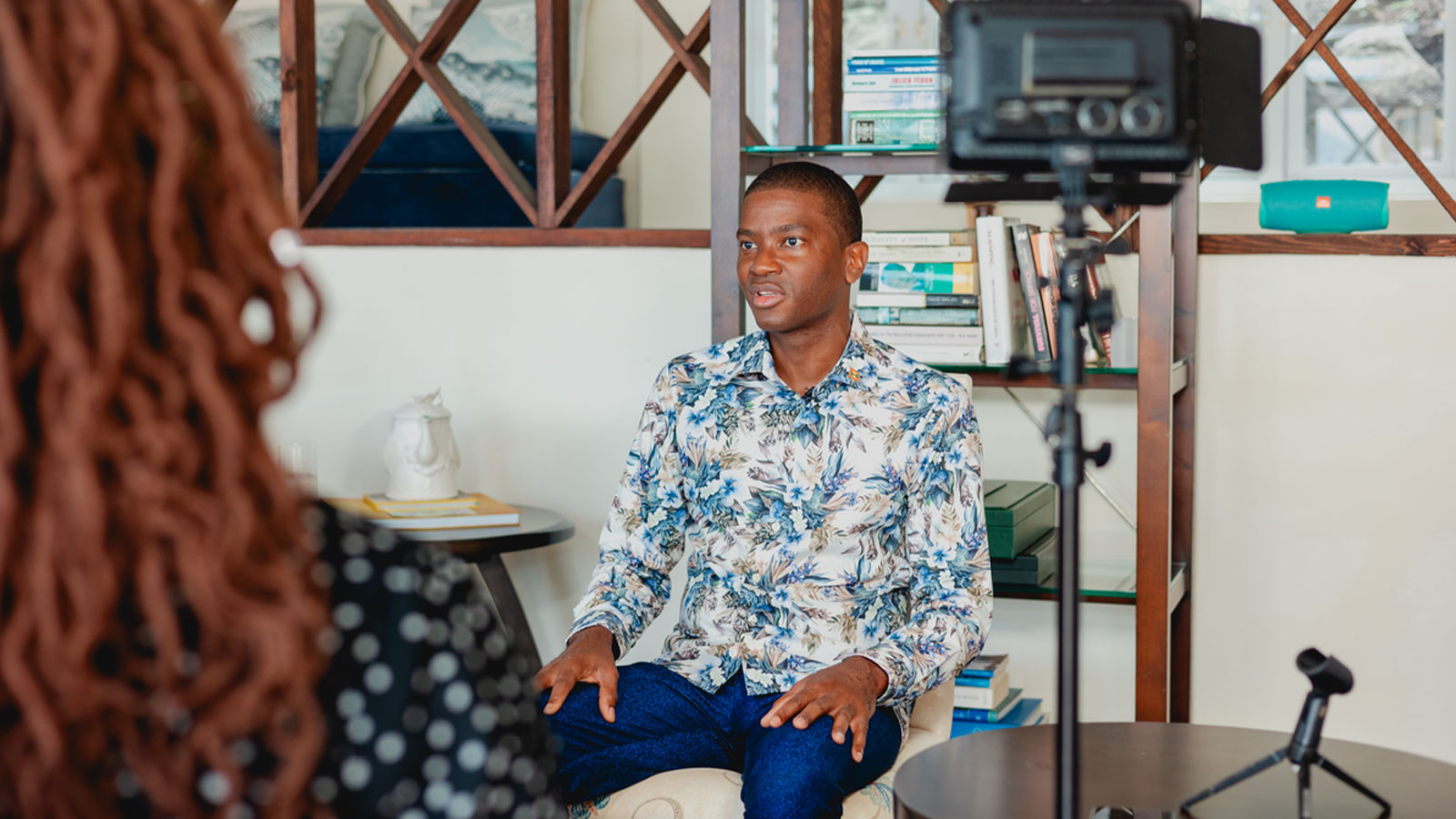
Grenada PM in conversation with Dickon Mitchell (Que Media)
But the UK government is continuing to resist reparations.
Prime minister Rishi Sunak refused to apologise for the UK’s role in historical slavery and colonialism, rejecting a call to commit to reparations when challenged in the Commons in April.
In a recent exclusive interview with The Independent, the prime minister of Grenada issued fresh calls for Britain to pay slavery reparations to its former colonies.
Following the Gladstone family’s apology, Guyana’s president, Irfaan Ali, renewed calls for Britain to pay slavery reparations, as did Ghanaian president Nana Addo Dankwa Akufo-Addo
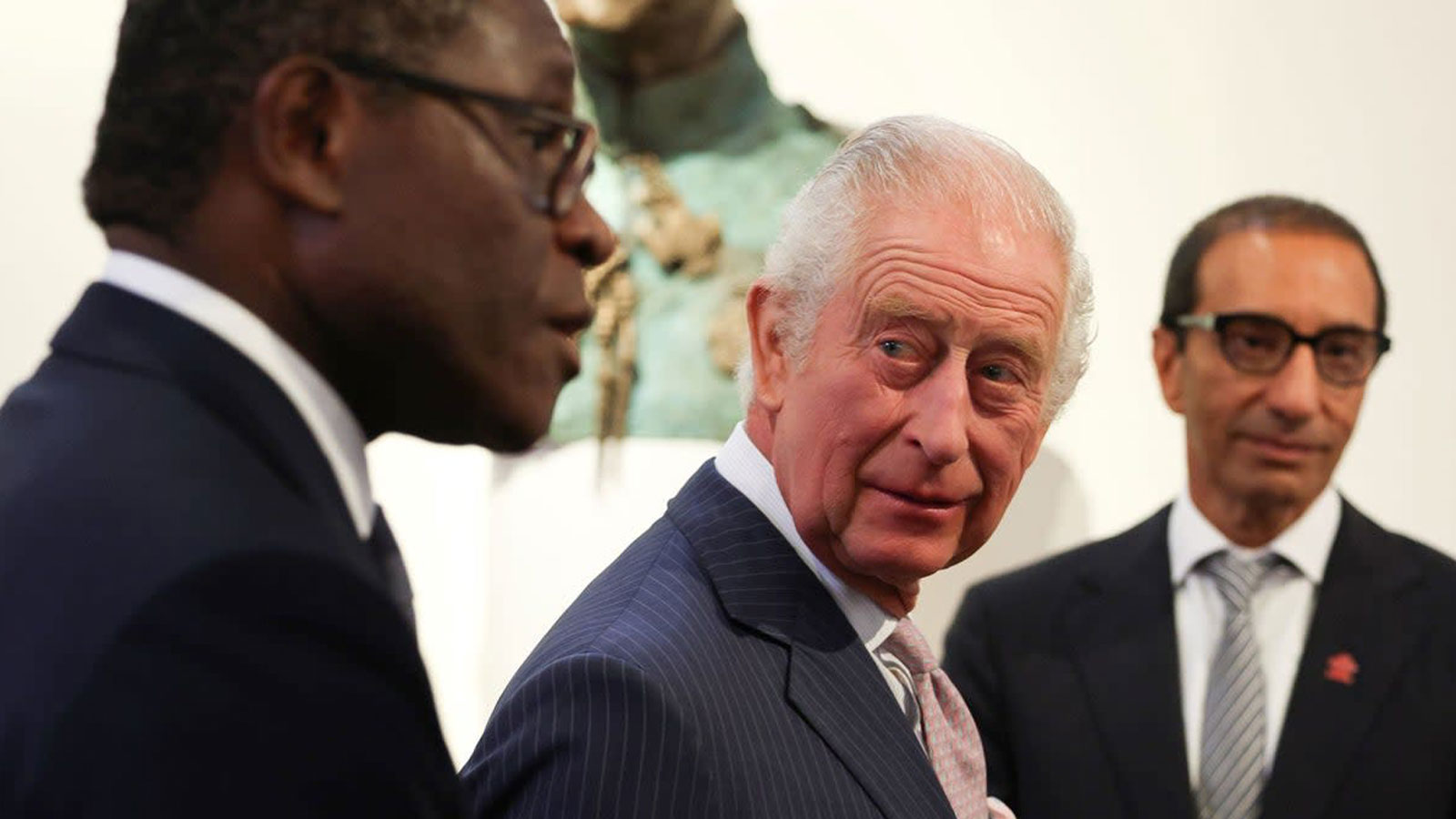
King Charles attends a reception and discussion to learn about opportunities for young people and the role of entrepreneurship in Africa at Garrison Chapel in London (PA Wire)
Ahead of King Charles III’s coronation in May, more than a dozen Commonwealth representatives called upon the monarch to apologise and pay reparations for slavery.
Since Barbados became a republic in November 2021, replacing the late Queen with a president as its head of state, other nations including Jamaica have signalled an intention to do the same, breathing new life into the reparations movement.
The future role of the monarchy in the realms came under renewed scrutiny following the death of the Queen and reparations protests surrounding royal trips to Caribbean countries by the Prince and Princess of Wales and Duke and Duchess of Edinburgh last year.
Source: The Independent


